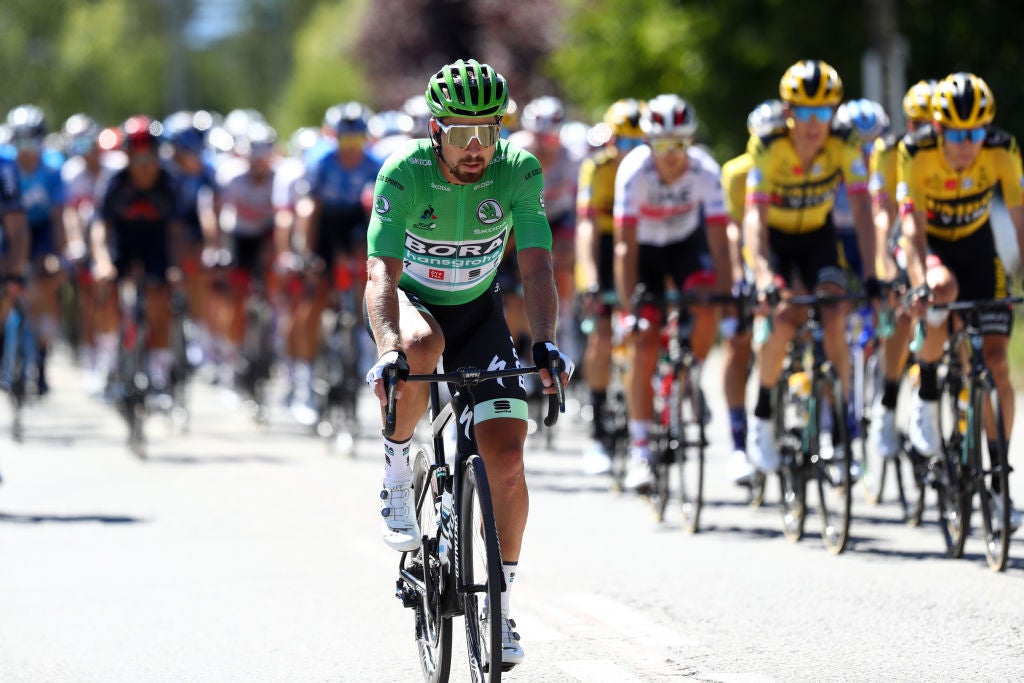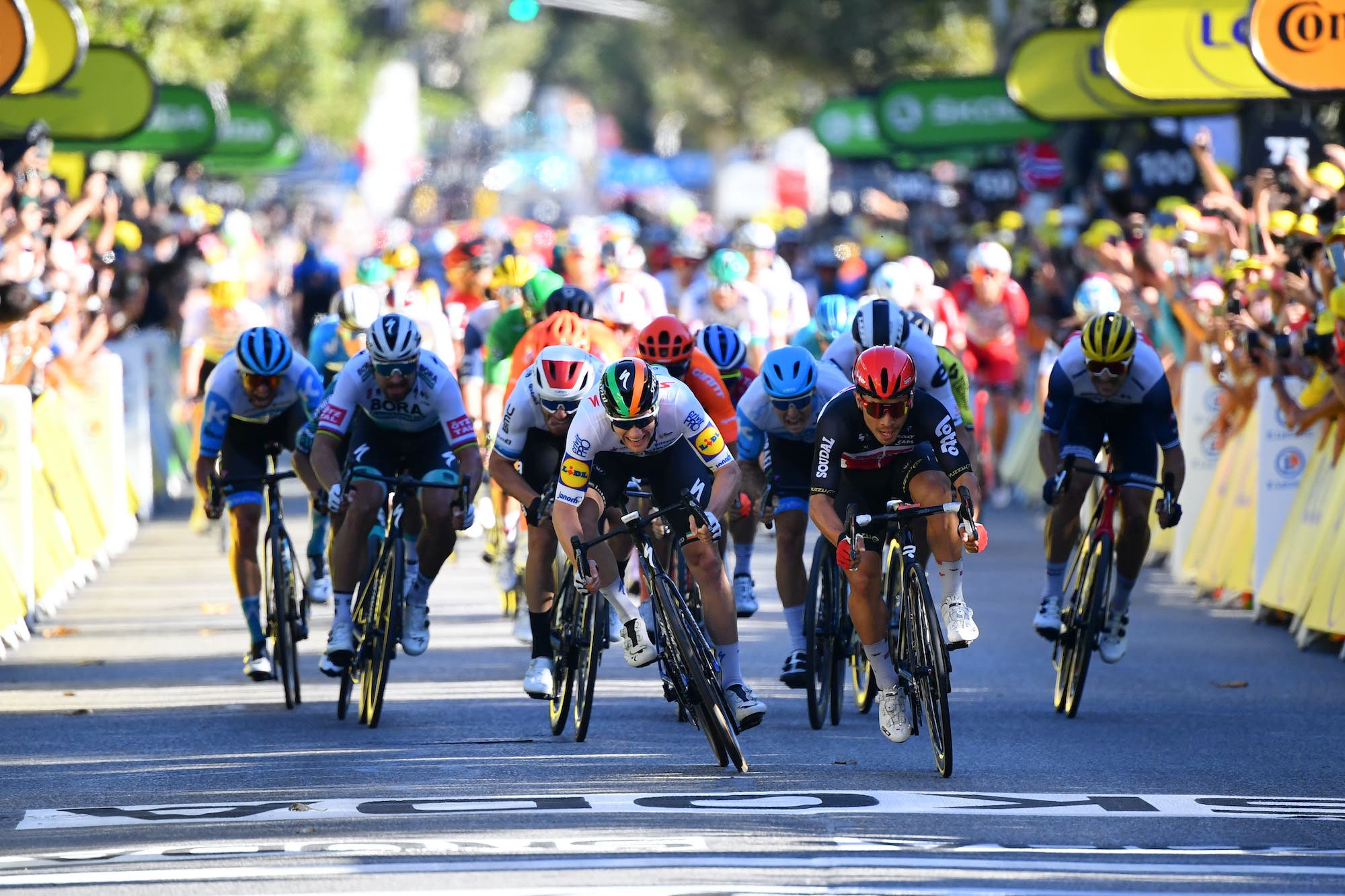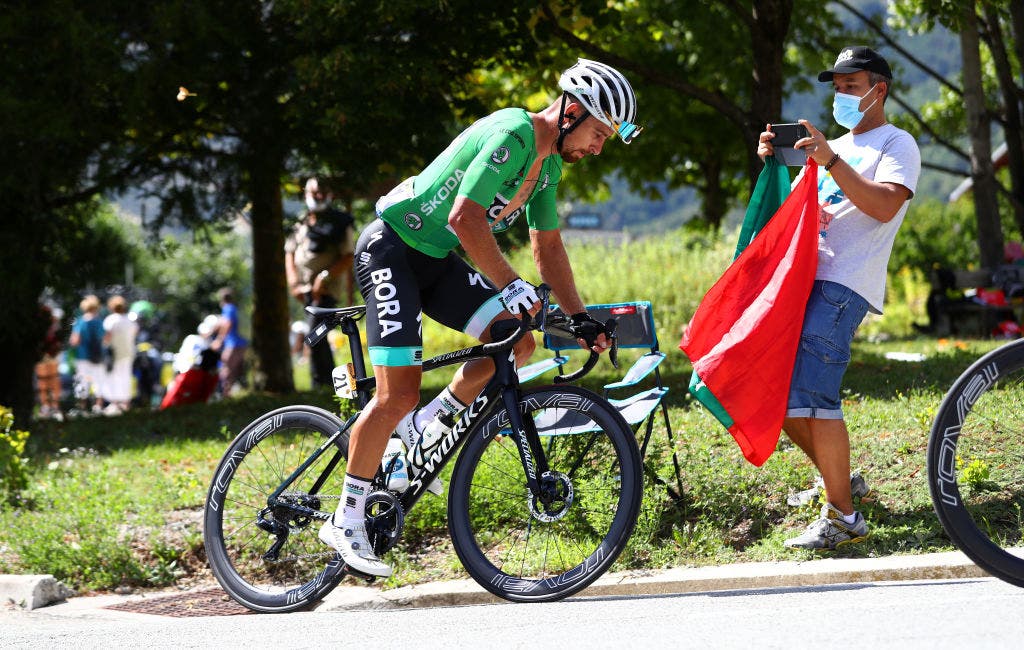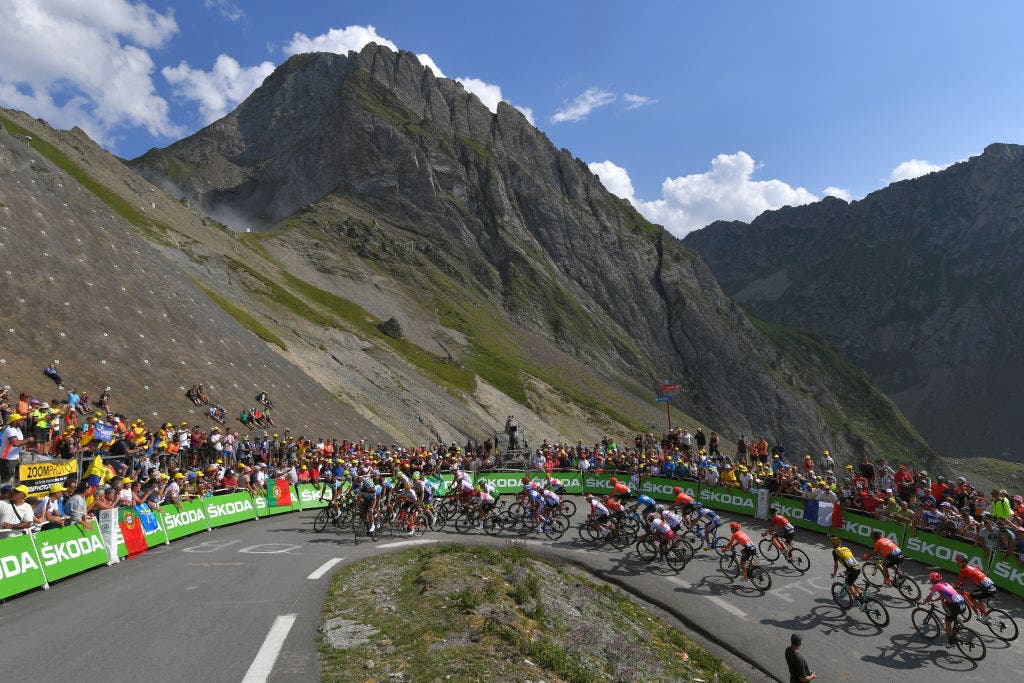Active Pass roundtable: Why doesn't Peter Sagan have a rival for the Tour de France's green jersey?

ORCIERES, FRANCE - SEPTEMBER 01: Peter Sagan of Slovakia and Team Bora - Hansgrohe Green Points Jersey / during the 107th Tour de France 2020, Stage 4 a 160,5km stage from Sisteron to Orcieres-Merlette 1825m / #TDF2020 / @LeTour / on September 01, 2020 in Orcieres, France. (Photo by Michael Steele/Getty Images)
You have questions about the 2020 Tour de France, and we have answers and educated opinions. Our veteran reporters, Andrew Hood and James Startt, are fielding your biggest inquiries each day in this Active Pass roundtable column. Today, we have inquiries about the rules on sprint stages, and why none of the Tour’s sprinters are challenging Peter Sagan for the green points jersey.
Related:
To submit a question of your own, scroll to the bottom of the page and type it in via the online form. We want to hear from you, so please send along any inquiry you’d like to be answered.
OK, let’s get to your questions!
On a sprint stage, why not just say everyone who finishes within a minute of the winner gets the same time. Get the GC teams out of the way and safer for all. — Craig

Andrew Hood @eurohoody: There have been similar proposals to take the time at — 1km for that very reason, to give sprinters more “room” to sprint without having the GC guys getting in the way. A few years ago, the UCI slackened the rule about where to take the time in a split in the bunch in the mass gallops. Teams like Sky were becoming quite adept at pushing Froome into the top-10, and sometimes the elastic would snap in the middle of the bunch, and riders caught on the wrong side of a split lost time. Of course, the time is taken from the first rider in each group, not the last, so if someone sat up and opened up too much space, a rider could lose several seconds. Others will say, well, we cannot forget it’s a bike race.
James Startt: No, that’s bike racing. GC riders should be able to stay in the bunch, they should be able to ride cobbles, ride in the rain, you name it. A rider who wins the overall classification is the most complete rider in the race and should be able to do everything.
Why aren’t there more legitimate contenders for the green jersey? I know Peter Sagan is strong, and all, but I have to figure that some rider would become a legend if he challenged Sagan and won. — Dave

Andy: Agreed — part of the reason why Sagan seems to win unchallenged is that he is so consistent; he typically finishes in the top-5 almost every “points” stage in the race. And he’s always in the mix for the intermediate sprint. Sprint stages have become so hard that pure sprinters like Alexander Kristoff won’t always get to the line on days when Sagan can. And the way the points are divvied out also favors Sagan. In the past, there were also more intermediate sprints, meaning sprinters would be fighting for green longer. The points jersey fight used to go all the way to Paris — now people say it’s over after stage 3.
James: Well, Michael Matthews is a constant threat for the green but he is not here, and Wout Van Aert would have had a real chance of dethroning Sagan, but he is not racing for himself here but instead pulling team duties for his GC riders. And then a lot of sprinters simply feel that a stage win, even one, is worth more than the green jersey. I don’t necessarily agree, as I love the green jersey competition. I am also often frustrated that pure climbers don’t focus more on the polka dot jersey more. But these are secondary prizes after all. I just spoke with Andre Darrigade, one of the greatest sprinters all time, and winner of 22 stages. The green jersey began in 1953 to mark the 50th anniversary of the Tour. Darrigade won it twice, but admits that it wasn’t that coveted back in the day. Certainly, it is more important today and Sagan has taken it higher. But it green is not yellow.
What will be the most decisive stage of the Tour this year for GC and why? — Phil

Andy: I think the Alps will be the kingmaker this year, and stage 17 finishing atop Col de la Loze will crown the eventual winner. At 2,304 meters elevation, it’s the highest point of this year’s Tour, so it naturally benefits Bernal and the other South Americans. The top part of the road is essentially a paved-over ski run so it gets steeper the higher it goes. A sharp, sustained attack with two to three kilometers to go can win the yellow jersey for someone this year.
James: What won’t be the decisive stage? This race could blow anywhere. There are so many key stages its not funny. No one will win the Tour on Orcières Merlette but some may lose it. The climb up to the Mont Aigoual on stage 6 will be another hard climb very early in the race. But I think that is a tradition that will continue in this year’s race. The winner won’t necessarily be the strongest, but he who can survive.
If you have any thoughts on ways to do so, feel free to email me at webletters@velonews.com.